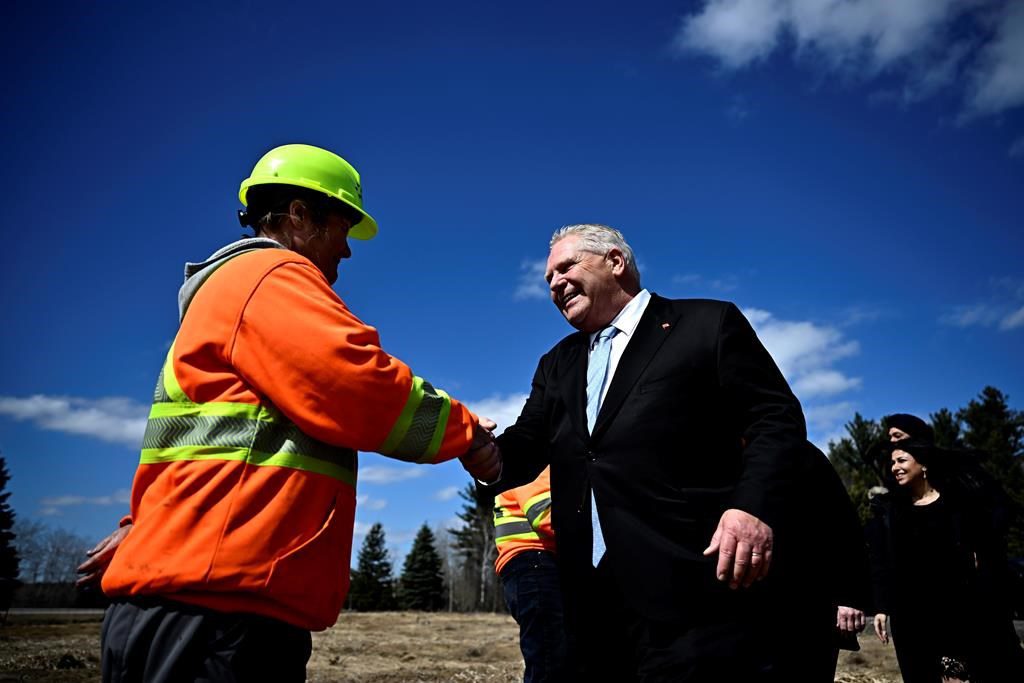Some critics argue that the Ontario budget's failure to directly address climate change shows the government's lack of responsibility and the urgent need for more efforts to adapt to a changing climate.
The budget introduced on Tuesday mentions investments in climate-friendly public transit, electric vehicle manufacturing, and conservation. However, critics point out that it does not adequately address how the government will specifically assist communities in mitigating the effects of climate change and adapting to its realities.
Keith Brooks, a programs director with Environmental Defence, expressed that the government's inaction is a gross abandonment of responsibility as the climate crisis continues to worsen.
The provincial toolbox contains many of the necessary tools to address the climate crisis.
The 200-page budget only makes two mentions of climate change, both related to the sustainable bond program used by the government to raise money for environmentally friendly projects.
In contrast, the finance minister's budget speech criticizes Ottawa's measure of the federal carbon price ten times.
Critics argue that the government needs to demonstrate better preparedness in the face of extreme weather events, such as last summer's heat and wildfires followed by the warmest winter on record.
Gideon Forman, a Ontario climate change and transportation policy analyst at the David Suzuki Foundation, believes that the government is not taking the issue seriously.
The environment minister's press secretary mentioned various initiatives in the budget, including green bonds for financing extreme-weather resistant infrastructure and clean steel production.
Alex Catherwood, press secretary to Minister Andrea Khanjin, highlighted that it is possible to protect the environment without implementing a costly, job-killing carbon tax.
In contrast, Quebec and British Columbia have made climate change a prominent feature of their recent budgets, with Quebec allocating $127.5 million over five years for environment and climate change adaptation, and British Columbia pledging $1 billion for climate-related initiatives, including enhanced wildfire response.
The Ontario budget allocates $81 million less for forest firefighting this year compared to the previous year, which represents a 38% decrease.
However, Catherwood dismissed the notion that the forecasted spending was a budget cut, emphasizing that the government remains committed to ensuring the safety of people, property, and communities.
Catherwood also stated that base funding for emergency fire preparedness has almost doubled since 2018 to $135.9 million, with additional support for firefighter retention and recruitment.
Experts warn that climate change is intensifying wildfires, and there are concerns that 2024 could be as severe as last year's wildfire season.
Green Party Leader Mike Schreiner believes the budgeted amount demonstrates the unpreparedness of the Ford government for the climate crisis.
“According to wildland firefighters, it is much more effective to spend money on preparation before a fire occurs, rather than reacting after a million acres are on fire, as was the case last year,” Schreiner told reporters.
The government’s financial watchdog and its own climate assessment report have cautioned that climate change poses a threat to everything from infrastructure to food security.
In November, Ontario’s Financial Accountability Office stated that the risks of a changing climate could increase the annual cost of maintaining Ontario’s public infrastructure by over $4 billion. The report suggested that the province and municipalities could reduce that cost by proactively enhancing the resilience of hospitals, schools, stormwater pipes, and other public infrastructure to extreme heat and rainfall.
Businesses have also urged the government to improve climate readiness. In response to the budget, the Ontario Chamber of Commerce called on the province to take “bold action” in the latter part of its term to support climate resilience through an adaptation and mitigation plan.
Brooks, from Environmental Defence, mentioned that the budget seems to show that the government is ignoring “all of the evidence that indicates the need for increased investment in reducing emissions and adapting to climate change that is already underway.”
The government did receive compliments from certain environmental groups for specific initiatives.
The Nature Conservancy Canada and the Ontario Land Trust Alliance, both non-profit partners in the program, welcomed the budget’s $20-million investment over four years in the Greenlands Conservation Partnership.
The fund is used to buy private lands and convert them into local and regional land trusts, safeguarding 167,000 hectares of land since the program’s initiation in 2020.
“Preserving natural spaces plays a crucial role in reducing and adapting to the effects of climate change by providing safe havens for wildfires, capturing and storing carbon, and enhancing resilience to weather events such as flooding and drought,” stated Dana Kleniewski, Nature Conservancy Canada’s acting regional vice-president in Ontario.



